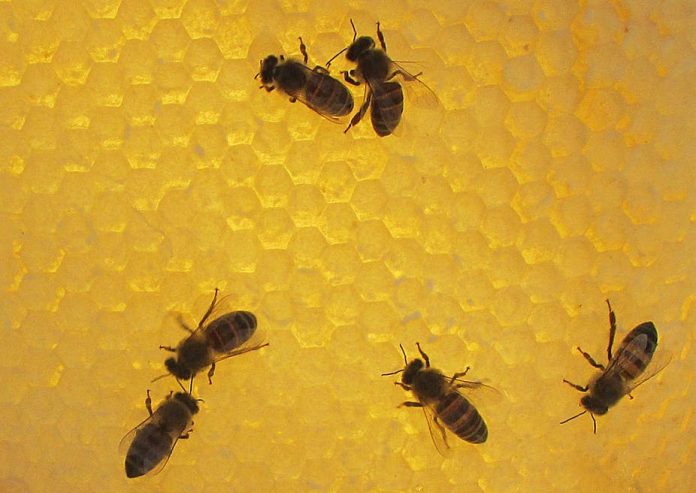Honeybees are under threat globally. These important pollinators are affected by issues of nutrition, habitat loss, pesticides, a changing climate, pathogens and an economic system that lacks ecological accountability.
Honeybee (Apis mellifera) populations are also being wiped out by Colony Collapse Disorder, caused by a cocktail of debilitating factors. Industrial-style beekeeping practices are making this worse. Since the condition was first reported in 2006, it has killed tens of millions of honey bees. Bees compromised by the effects of the disorder are most vulnerable to the deadly varroa mite. In many commercial apiaries the parasite is controlled by chemical intervention. Chemicals plus the pathogens carried and introduced by Varroa destructor increase the stress bees are facing. Research by the Honeybee Genome Sequencing Consortium suggests that Apis mellifera is especially vulnerable because it “has fewer genes for innate immunity” and fewer genes for production of “detoxification enzymes”.
Yet the species is faring far better in many African countries than elsewhere. One of the reasons for this may be the continent’s deeply embedded indigenous knowledge and traditional beekeeping practices. In a 2012 report, for instance, the United Nations’ Food and Agricultural Organisation acknowledged that:
The main region of the world where traditional beekeeping practices are still the most widely used – tropical, sub-Saharan Africa – is also the region with (the) least honey bee disease problems. Read more…



